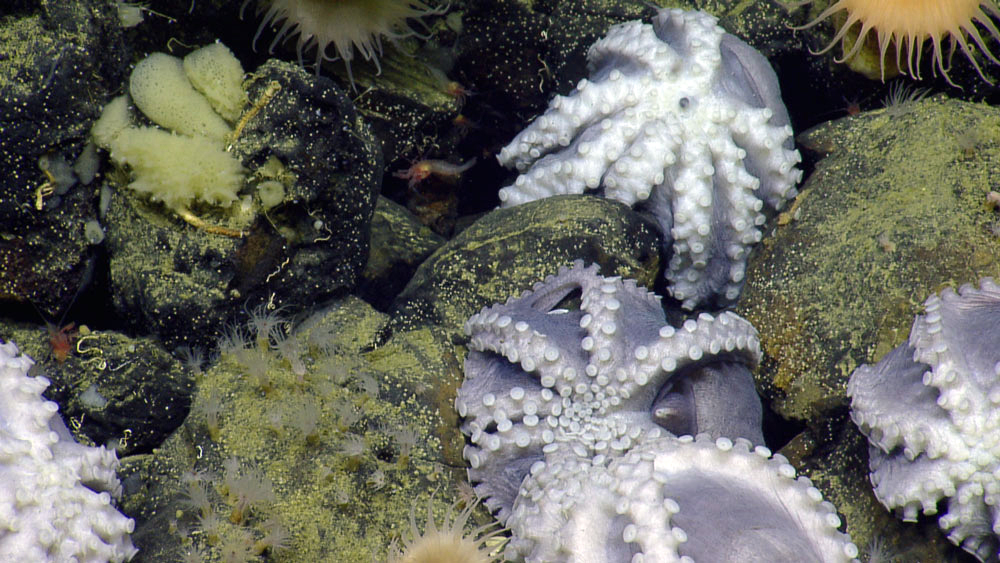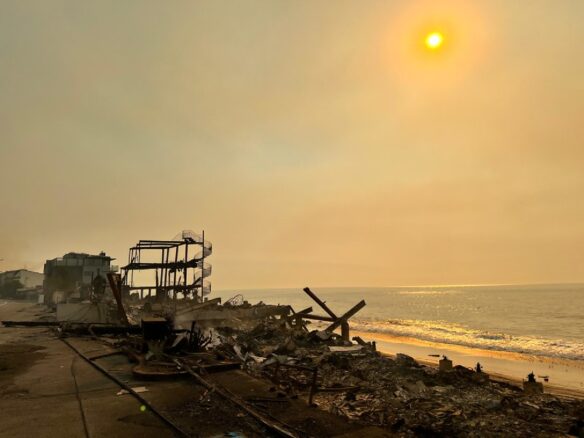Excerpt:
Deep below the ocean’s surface just off the Central California coast, thousands of octopus gather near an extinct underwater volcano.
The Octopus Garden is the largest known aggregation of octopus anywhere in the world.
Researchers from NOAA’s Monterey Bay National Marine Sanctuary and Nautilus Live first observed thousands of pearl octopus (Muusoctopus robustus) nesting on the deep seafloor near Davidson Seamount in 2018. Their discovery captured the curiosity of millions of people around the world, including MBARI scientists. For three years, MBARI and a team of collaborators used high-tech tools to monitor the Octopus Garden and learn exactly why this site is so attractive for deep-sea octopus.
Using cutting-edge technology—including many instruments designed by MBARI engineers—MBARI researchers and our collaborators from NOAA’s Monterey Bay National Marine Sanctuary, Moss Landing Marine Laboratories, the University of Alaska Fairbanks, the University of New Hampshire, and the Field Museum confirmed that Muusoctopus gather at the Octopus Garden to mate and nest.
Female pearl octopus nest in cracks and crevices bathed by warm water. Warmth from deep-sea thermal springs accelerates the development of octopus eggs. Scientists believe the shorter brooding period increases a hatchling octopus’ odds for survival.
The size of the Octopus Garden—likely more than 20,000 total octopus nests—and the abundance of other marine life that thrives there underscores the need to understand and protect hotspots of life on the deep seafloor from threats like climate change and seabed mining…
Video credits: Producer/editor: Kyra Schlining Script: Jim Barry, Heidi Cullen, Raúl Nava, Kyra Schlining Narrator: Jim Barry
Graphics/Animations: Madeline Go Production team: Jim Barry, Heidi Cullen, Madeline Go, Raúl Nava, Kyra Schlining, Nancy Jacobsen Stout, Susan von Thun
Also see National Marine Sanctuary Film:
Discover Wonder: The Octopus Garden









